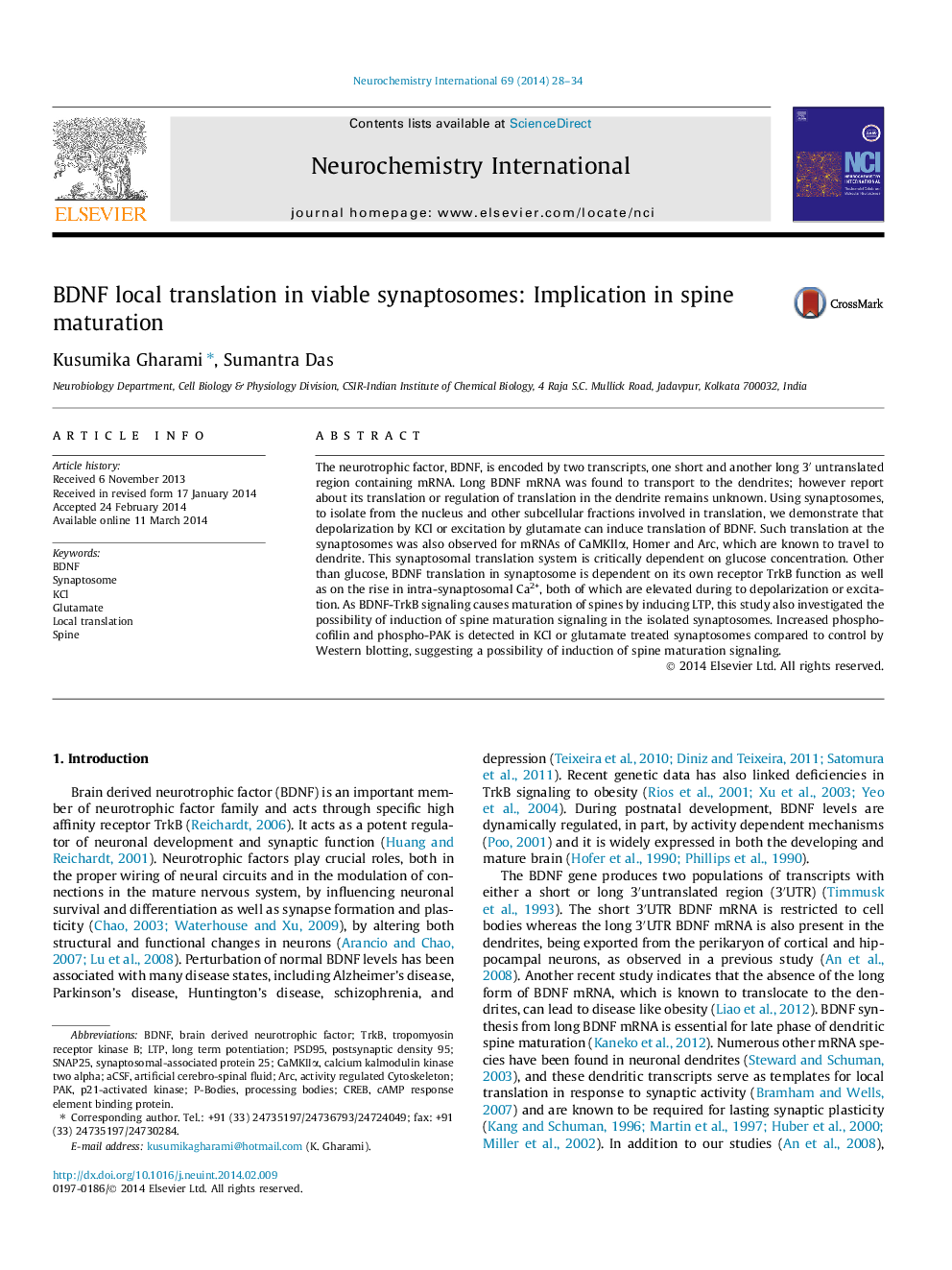| Article ID | Journal | Published Year | Pages | File Type |
|---|---|---|---|---|
| 2200612 | Neurochemistry International | 2014 | 7 Pages |
•KCl or glutamate causes induction of 32 Kd BDNF expressions in synaptosome.•Induction was observed in synaptosomes of cortex and hippocampus but not striatum.•Proper peripheral glucose concentration is important for local translation of mRNAs.•pPAK and pCofilin are induced by KCL or glutamate treatment of synaptosome.•Results suggest local translation of BDNF may cause spine maturation.
The neurotrophic factor, BDNF, is encoded by two transcripts, one short and another long 3′ untranslated region containing mRNA. Long BDNF mRNA was found to transport to the dendrites; however report about its translation or regulation of translation in the dendrite remains unknown. Using synaptosomes, to isolate from the nucleus and other subcellular fractions involved in translation, we demonstrate that depolarization by KCl or excitation by glutamate can induce translation of BDNF. Such translation at the synaptosomes was also observed for mRNAs of CaMKllα, Homer and Arc, which are known to travel to dendrite. This synaptosomal translation system is critically dependent on glucose concentration. Other than glucose, BDNF translation in synaptosome is dependent on its own receptor TrkB function as well as on the rise in intra-synaptosomal Ca2+, both of which are elevated during to depolarization or excitation. As BDNF-TrkB signaling causes maturation of spines by inducing LTP, this study also investigated the possibility of induction of spine maturation signaling in the isolated synaptosomes. Increased phospho-cofilin and phospho-PAK is detected in KCl or glutamate treated synaptosomes compared to control by Western blotting, suggesting a possibility of induction of spine maturation signaling.
